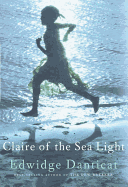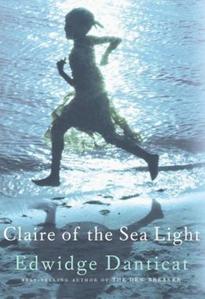

At the novel's heart is Claire Limyè Lanmè, a child raised in the impoverished town of Villa Rose by her father, Nozias, an illiterate fisherman, after her mother died in childbirth. It is the morning of her seventh birthday. Nozias has often wondered whether he should give Claire away, unable to imagine providing a future for her. He has asked Gaëlle Cadet Lavaud, who had been kind to his wife and who has lost her own husband and daughter, to take the child. Gaëlle has refused in the past; today, as the village men comb the beach in search of a fisherman lost at sea, she agrees--but then Claire disappears.
The novel unspools from here, looping back through each of Claire's previous birthdays to tell the story of someone who died that day and who they left behind, however close or unsubstantial their connection to Claire and Nozias. Characters on the periphery of one story take center stage later with a story of their own, where Claire briefly appears. With this indirect, looping and overlapping approach, we begin to piece together what happened both over the course of a single day and through the years. In this way, Danticat shows how the past infuses the present, how lives overlap, unknowable but essential.
Danticat combines an indirect style with asides, Creole vernacular and a vivid portrayal of a beautiful but haunted place, giving her narrative a mythic feel. She seems aware that she is writing for both a Haitian and general audience, weaving in explanatory context alongside Creole fragments. The people in Claire of the Sea Light react to Haiti's corruption and its history of violence with fatalist acceptance, angry resistance or opportunism; the nation's troubled history casts as much of a shadow over the novel as Claire's disappearance. We mourn each death that occurs on Claire's birthday--as Danticat reminds us, despair and hope are inseparable. Sometimes, as is the case with the story of Bernard Dorien, the narrative seems laced with rage at the blind eyes of violence and of justice.
This is a stunning, complex and compassionate novel, and ultimately a hopeful one. --Jeanette Zwart
Shelf Talker: A dazzling, evanescent and intricate novel from Danticat, a National Book Award finalist several times over and author of the Oprah Book Club selection Breath, Eyes, Memory.

